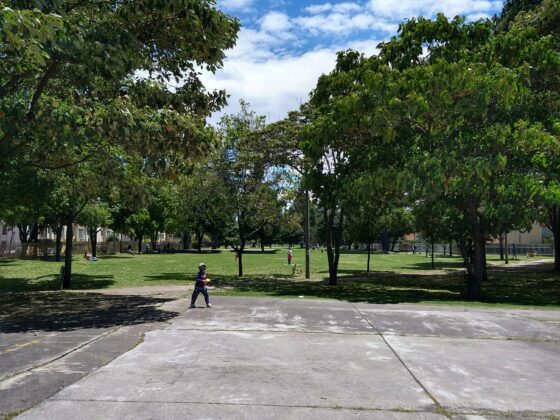Josiah: Today is International Human Resources Day, and I can’t think of someone who can better teach us about taking care of people than our guest today, Pablo Brizzi, who is the Chief Human Resources Officer at a company recently awarded as one of the best workplaces in America, across industries, Hilton Grand Vacations. Keep listening to hear Pablo’s own surprising career journey, which included moving from Argentina to Ohio and navigating that culture change. How he decided to take his current role. There are lessons for you here on a career level and also in becoming an employer of choice. How he defines culture and measures it, since he’s a steward of this in his organization. And finally, his advice for integrating culture in mergers and acquisitions. A pivotal time in any organization’s journey.
Pablo: We are in the business of making people happy. How do we make people happy? To give them the best experiences we can when they use that short time, when they spend time with family, with friends, when they go on vacation and when they need to relax and recharge. Well, that’s Pablo’s version. Okay. Making people happy. Now we’re a big company. As you know, we’re a public company. We’re in the vacation ownership business. We have about or over 700,000 members. Okay. That are in our clubs. We have about 20, right now, 22, 23,000 team members. We were just Hilton Grand Vacations. Then in 21, we acquired Dynamo Resorts. They became part of Hilton Grand Vacations. And now, in January this year, we acquired Blue Green Vacations, which also became part of the group right of the company. It’s a company that is driven by putting people first. And by putting people first, when our team members are happy and we take care of them, they take care of the owners and of the customers. So at the end of the day, it’s a cycle of everybody feels good and make our customers happy in a way.
Josiah: We talk about everybody feeling good, your customers, your guests are happy, but also your team members are very happy as well. There was a survey done and Hilton Grand Vacations came out as a top employer. And so I want to get into the story of that, but just to give our listeners a little bit more context, I’d love if we can spend a few moments talking about your career journey, Pablo, into your role today, maybe to go way back How did you get started in hospitality, and what were some of the key moments in your career journey to your role today?
Pablo: Well, I’m originally from Argentina. I might not have even thought about being in hospitality; I will be honest with you. When I was doing my high school, then decided to go to university, I got a financial degree. I was supposed to be in the banking industry, in the financial industry. I was hoping I will move to the States and be in Wall Street. You know how life takes its turns, right? So basically, I joined a big multinational American corporation in Argentina as an intern. That internship had a couple of stops that you do until you finish in the function that you are the one that you’re studying for. In this case, it was going to be finance. Well, the first function that I was going to do for six months was personnel administration because human resources didn’t exist then, right? So personal administration, when long story short, so I don’t bore you, when it was time to move to the next assignment for another six months, I was going to be marketing, the head of personal administration said, well, what about if you take a full-time job, even if you’re in university still? And I’m like, Okay, why not? So that’s how I ended up in HR, right? I did personal administration, compensation, and benefits. Then after I left that company, I became the HR director for a private equity in Argentina. After that, I joined another American corporation, and after two years, they invited me to come here to the United States. I moved from Buenos Aires, Argentina to Dayton, Ohio. Okay. So that was a big shock. That was like going out to dinner at 1030, 11pm, because that’s when you go in Argentina to the restaurants close at 730. Right. But it was great because it helped me to learn the American culture. And I loved it. I actually loved it. So I decided to stay here in the States. I went through a lot of things in my career detours because I wanted to do this and then somebody tell me, no, why don’t you help us with an acquisition? I was like, well, OK, let’s try to do it. And it was great because he gave me all of these background and experiences that got me into what I am today. that if I can look at me after 30 years working, I don’t think I’m the typical HR leader. But you know, who says that? I’m saying that. So people may think differently of that. But the thing is, after several years in oil, in private equity, in technology, I went into hospitality. I joined a big, big hospitality company here in the United States. They have 1,500 restaurants. And as their head of HR, CHRO, then in addition, well, that’s another detour in my career, right? After a couple of years, they put me in charge of all of corporate affairs, communications, facilities. So I learned a lot through that and was with them for about 10 years. And in the middle of the pandemic, Hilton Graham occasions, reach out. And I went like. Vacation ownership. I don’t know about that. Well, then, of course, I met with the CEO of the company, Mark Wang, and the rest is history, right? And then after that, I met with the leadership team, and I loved it. It’s a great culture. I do not negotiate that. That’s the only thing that I don’t negotiate. When I decide to do something and associate myself with something, it needs to have the same principles I have. I think that people should do things that are beyond that, getting that paycheck, right? And if you can, that’s awesome because it actually, you feel good. And when you feel good, that’s why it’s so important to have this culture. You have the ability to not only succeed professionally and personally but also to help other people. And we’ll probably talk about the community and everything because those are also very important things for me that are aligned with the company and AGV as well. So that align with my values.
Josiah: Let me ask you this, Pavel, because you described the culture as being really good. You were a people leader across industries, and then you get the call, as you mentioned, you start meeting with the team, and you said you knew the culture was good. What were some of the ways you picked up on that? Because I guess I would like our listeners to be able to assess this for themselves, whether they have a new career opportunity or even within the roles that they have now. What were some of those factors that helped you say, this is a good company with a good culture.
Pablo: Well, I will tell you, years ago, when I started, it may have been more difficult, right? Because if you have a team that is trying to recruit you and they align on the message they want to give you, they may sell you on something that’s not right. I’m not saying that they do, but some companies may do that. Today, you have a lot of tools. You can check online, You can look at different websites that actually evaluate. You can see if companies have, and also Hilton Grand Vacations is a, it was a spun off from Hilton Corporation, right? Hintel Hotel. So I also read about that because they transfer from that culture, right? So you learn a lot about that, the values of the companies. You go to a website now and you see the leaders and you see what the leaders have done and the involvement they have with the community. Then you meet with them, right? So, and then you start talking to people and I have heard a lot of things, so I can pick up when people are not being fully transparent. And again, consistent across the board, not just management, but also the board level, because of course, in my job, you got to work with the board. So I asked to meet with the board before joining the company, and I did that individually. They were very complimentary because these board members sit in other boards as well of the culture of the company, of the management, how it’s managed. Because at the end of the day, as I said, if you take care of the people, the business will be successful. It will be successful because people will give themselves and the best to the business as well. Right. So.
Josiah: You touched on one element of this, but I would be curious to get your thoughts on how you define culture because I’m trying to define it for myself and for my listeners. And it seems like a simple concept, but something that’s hard to put where it’s around, you mentioned one aspect of this, it seems like there is consistency across all different functions or levels of leadership. So it seems like that clarity around here’s what we are is maybe a piece of culture, but what comes up for you when you think about kind of defining culture or what is culture?
Pablo: How would you describe that? I think that the definition of culture is different for whoever wants to assess it, right? But basically, culture is how you do things. What are the values that you bring when you’re doing your business? Okay? Is the DNA of the company. Is you treat people very well getting in the company. You treat people very well when they exit the company. Whatever the reason is, they exit the Okay, you get involved if you have for example, culture for me is a company who has the right culture a good culture is a company that not only focus on the business but on the people and focus on the communities is how do you go about being yourself. And in this case, it’s a company, right? And a company is comprised of a lot of people. So one thing that is interesting, I have worked for huge companies and I have worked for smaller companies. And when you’re small, the high touch, the culture, those values are, I don’t want to say easier, But yes, they are easier because you have a certain size. The bigger you get and when you start bringing other companies into the mix because of acquisition or because you’re growing other products, the higher the touch because of the number of people, the more difficult it becomes. When companies get to a place that regardless of the size, they can maintain that DNA, that value, that focus on people first, that’s when you hit the jackpot about working for a company like that.
Josiah: There’s so many elements of this that I’d like to unpack, but I want to also just spotlight or call out that your company has received recognition as one of the top workplaces. Can you tell me a little bit more about that recognition and how that came to be?
Pablo: You know, recognition, listen, I don’t want to be unfair. It’s awesome to get, right? But it’s the outcome of something that you or the team has worked for a long time. And actually, it’s the outcome of something that sits with the team members. This is not the HR team. This is not Pablo’s leadership. This is not the surveys that they put together to then assess and give you those awards or those recognitions. The participants are the team members. So this is how they feel. The companies are made not just by the leaders of the HR departments or the communications department but by everybody who makes this company possible. So I think those type of recognitions are a recognition, not just the culture of the company, but everybody who makes that culture possible.
Josiah: That’s great. I want to talk a little bit about why a great culture and a great workplace is important. Just to set the stage, and we’ll get into some of the details of how you’ve helped steward this. Why is it, as you look across kind of the employer landscape, across the market right now, I think people in business have always talked about wanting to create a great workplace, but in your view, why is it especially important today?
Pablo: Well, I think it was always important, but I think that there was an inflection point that happened to be in our lifetime. And these generations that are coming, they may not have it, right? And that was the pandemic. The pandemic, I think, set up the stage for people to stop the ball. I’m going to put an example of maybe soccer. Stop the ball, look at the field, and say, what do I want to do? Right? Because at the end of the day, provided the opportunity to, hey, the office is closed. You got to work from home. Oh, you have to spend more time with family. Well, that happens to be something that I really like. I think that allow people to prioritize what is important. And I think that something that happened is people realize that they want to be part that is bigger of something that is bigger than themselves. Right. And I think that that if you don’t have a good culture, I think that people may not may opt out. There’s a lot of opportunity out there. Okay, you see how things are, right? And still the unemployment is 3.8%, right? So I come from a country where the unemployment, you have very low unemployment if it is 10 and a half percent, right? So it is like incredible. So people has an option to where to be, where to go, who to work for. Josiah, we spend three times the time in the office or with our colleagues that we spend with the loved ones and with friends and with the people that we actually do everything for, right? So I think that that inflection point of the pandemic And I like to look at the glass that is the full part of the glass. And I think that’s the positive of the pandemic in a way. It was a disaster. It’s bad. People died. It’s awful. But that may be positive is that people have changed the way they thought about what a work or what work is.
Josiah: I wonder, Pablo, if you could describe some of the things that you’ve done to retain and sort of steward this strong culture? Because you mentioned that being a draw for you when you were interviewing and you were talking to people considering this role. And so you said it is definitely a team sport, but are there some practical things that you’ve done to make sure that culture remains strong and that you have a great place for your teams to work?
Pablo: Yes. There are a couple of things that are material. There are a couple of things that are more drives towards the emotional side in a way. One of the things that is super important is communication. How you communicate with your people so they understand what What are you going for? What are your principles? What are what is it that you’re aspiring to as a company? OK, and what is it that you expect from them so they know if they want to opt in or out? Because at the end of the day, it’s a mutual selection. OK, so then there are the material things, right? We have they want benefits. We have daily pay means people can get their pay on it after they finish their shift. Right. So flexible pay time off. We have the the The adoption program, we have the parental leave for both mom and dad. We have a lot of team members, resource groups, right? There’s a lot of things that you do from an emotional point of view connection, right? And from a material, if you want point of view, that combined provides that mix that I think is what team members want, right?
Josiah: Amazing. And how do you keep track of, I guess, the effectiveness of both of these components of your workplace, right? Because I think as you alluded to, external recognition is nice, but it’s not everything. I imagine there’s other indicators you’re looking at. Is somebody leading this function for the business? What are some of the metrics or areas that you use to assess the health of the culture in the organization?
Pablo: Yeah, so I believe that there are a couple of things that you do. First of all, we have town halls. That’s not only town halls for the whole combat that we do that, but You also have individual functions town halls, individual regions town halls. We do the engagement surveys once a year that everybody participates. The participation, for example, is in the 80%. That’s unseen. I have not seen that before in all of my previous companies, right? And they had some of them even bigger resources because they were massive. Right. So then you get the results from that. Right. And yeah, we are 100 percent. No, but we’re higher than most of our benchmarks that we want to hit that are pretty, pretty high. Right. So that’s how you from a metrics point of view understand. Right. There are other things, for example, benefits. We have 71 percent of our team members that are enrolled in the benefits. Very few companies. And we provide benefits no matter if you’re part time, full time, you have one day in the company or if you have 25 years in the company. you can participate in our benefits if you’re single, family, whatever, right? So those things it’s our measurements that people is engaged and they like what they are doing, right? So then for example, we have the team member resource groups, right? So we engage with leaders in the company that wanna actually sponsor and participate and lead those things. When you are, I remember when I was an analyst, right? And I see a leader doing something, it picks vicarious because you look up to your leaders, right? And when you see them putting their time, putting their effort, when you know that they work 80 hours a week, it’s like, that means they mean it, right? So those are the type of things that you can see and evaluate and measure. And then of course, then they have the external service that become those recognitions in a way. But that’s why I’m saying, yeah, those are great. But there are other things that you can see that engagement, participation, community service. We have done, I don’t even know how many thousands of hours of community service. We have our CSR platform, which H-E-B serves. We cover many things and we can talk more in detail if you want. that we provide, we activate on a regional basis. We have a relationship, of course, at a national basis, and then we activate on a regional basis. We have thousands of hours that the team members put in the community to help. Those are the things that, as I said, after inflection point, people want to be part of those type of things, right? And when they engage in that, you know that they like it. Otherwise, they will not participate, right? Nobody’s telling them, you got to do it. Yeah.
Josiah: You mentioned the pandemic being an inflection point. I think that has been true for so many I’ve spoken with. I think another inflection point or another key moment is the acquisition or mergers of different companies. And you alluded to this. I’m going through two in the last 30 months. A lot of people I talk with, they find this very challenging, right? And on a lot of levels, especially the cultural level. I’m curious how you approach that. You have a strong culture. How did you think about these two acquisitions bringing new teams into the organization and and doing that transition well.
Pablo: I will say, I will agree with whomever told you that integrations are very complicated and very challenging and very exhausting. They are. but if you, but there’s a big difference on how the business will operate and how that culture will continue or not in how you do them. And you asked me, what are the things that are important that you do? One of them is communication. If you communicate the right way, if you keep them informed, if you ask them if they like it or not, we do, when we do this, we do pulse surveys every month. So we get the feedback on how they are feeling, if they are informed, if how things are going, right? So they are difficult, but there’s one thing we made the decision. And these were big acquisitions to the point that the one that we did in 2021, the company we acquired was actually the same size of our company, right? So it was almost a merger of equals, if you want, despite the fact that we bought the company. There’s one thing that I recommended that we don’t do. There’s a couple of ways of doing integrations when it comes to cultures. You can have a culture of company A, culture of company B, and then you try to find what the best things of both are to create a culture C, that is the new one that is in between the two. We decided that with respect The past, but we wanted to look forward and we wanted to look forward through the lenses of our own culture, company A in a way, right? AGV. So we integrated this other company into our culture, of course, through the process of understanding certain things. So nobody felt, Oh my gosh, well, you’re not appreciating what we have. No, no. We all talk, we did the focus groups, et cetera, but everybody aligned to merge into our culture. Right? Same thing we’re doing with the other acquisition now, Blue Green, right? So that’s kind of the approach we took to that. But to reaffirm your point, yes, it is crazy. Those type of integrations and acquisitions of the magnitude that we’re talking about, they are complicated. And it takes a lot for the teams, right?
Josiah: I’m curious, Pablo, some of the influences for you that have shaped the way that you view leadership and hospitality today. Before we started recording, you gave me a long list of names of people that you have been mentored by, influenced by, and I’m curious for, we could probably talk for hours about this, but I’m curious if there’s a piece of advice that you received early in your career that was very formative in your career journey and maybe specifically related to how you think about leading teams of people in culture?
Pablo: Well, there are a couple of things, right? All of the people that I listed in the pre-question section was people that impacted me big time. There was no question for the people that I didn’t list that are the people that I actually am thankful to, but I don’t want to be like them. Because as a leader, I will tell you, you learn from everybody, regardless if you’re aligned, if you like it or not. Because some of the people that you learn from that you may not want to do or be the way they did it, at least you’re learning that from them. So you gotta be thankful for. As I said, I always try to take the positive of things, right? Even if it is sometimes painful. But the thing is, I think that working with everybody first, understanding everybody so you see who you want to be, right? Other things are like, at least with my background, when you come to the United States from another country, English was my second language, it was hard. But I had a leader who told me, the sky’s the limit. If you want to do it, this is the country of the dream. This is the country of the American dream. So you can make it happen. Because I was so excited. It was great because I wanted to be good. Right. I’m. But again, I have certain things that were hard, like the language, the presentation skills, like the, this conversation we’re having right now, 21 years ago, I will have literally hyperventilated and almost died because it was, it was not, I couldn’t communicate very well when I was, or if I get too stressed or right. So sky’s the limit. And one thing that is critical, critical is you own your own career. It is okay to be part of a team where the leader helps you with career development, but make no mistake, you have to own your own career, okay? You can ask for help and advice and talk to your mentors, but at the end of the day, you are the one who owns that. You generate your own opportunities in a way. You work for a corporation, so they’re going to come, but you are the one who put yourself in a situation where people will say, okay, you want to try this or not? The other one is not a direct line to what you want to be. Sometimes you got to take detours. Sometimes it’s not a promotion. Sometimes it’s a lateral move. Several times will be a lateral move in your career. And guess what? Because you did those lateral moves, then you have the ability and the knowledge to do a bigger job that will manage several jobs of the ones that you have done. Right? So those are advice that I have gotten. The other one that is something that I try to practice, and I’m telling you, some of my leaders in my team do it even a better job than I do, is being a servant leader. So you’re a leader, you’re in that position already. Help the others to try to get to positions like that. Because when they feel that you’re helping them, they will, again, and they feel included, and they feel that you’re helping them to do that, they will own their career to then take to the next level, right?









